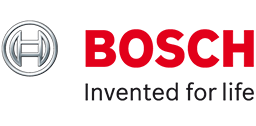Description: A continuing increase of performance requirements sets up the need for optimal gain and exploitation of information. This gives rise to a broad field of optimization problems in the context of uncertainty. Advancements in communication, information and sensor technologies are driving a trend in the development of complex, adaptive and reconfigurable sensor systems. Such a sensor system can have a large scope for online reconfiguration, which typically exceeds the management capability of a human operator. In addition, the sensor system can face a variety of fundamental resource limitations, such as a limited power supply, a finite total time budget, a narrow field of sight, a limited on-board processing capability, or constraints on the communication channels between the sensor nodes. Consequently, effective sensor scheduling and resources management is a key factor for the performance of the emerging generation of adaptive and reconfigurable sensor systems.
In the case of stationary sensors, it is usually desirable to schedule measurements to maximize the benefit in respect to the objectives of the sensor system, whilst avoiding redundant measurements. This benefit can be quantified by an appropriate metric, for example, a task specific metric, information gain or utility. For mobile sensors it is also necessary to consider the sensor platform navigation (including its uncertainties), as the sensor-scenario geometry can significantly affect performance of the current and future information acquisition, e.g., for coordinated exploration in disaster areas. Additionally, the coupling of navigation and sensing allows for the exploitation of the dual effect and an improved control performance. Considering the uncertainty of the controlled variable, which can be done explicitly or implicitly, allows for the exploitation of this dual effect and an improved control performance.
Organizers: Christof Chlebek, Fotios Katsilieris, Maxim Dolgov, and Uwe D. Hanebeck









